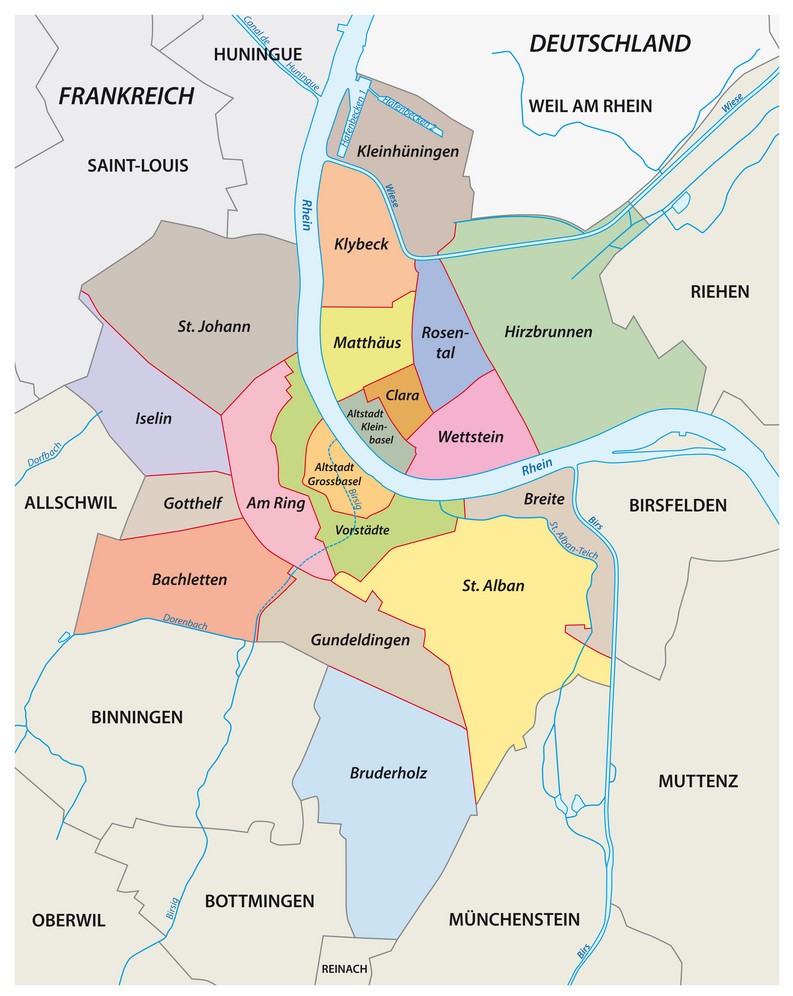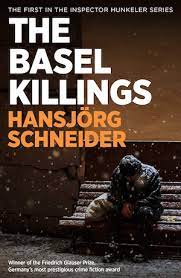The Basel Killings (2021) by Hansjörg Schneider.
Good Reads meta-data is 212 pages, rated 3.42 by 189 litizens.
Genre: Krimi.
Verdict: Foggy. Very.

On a cold and foggy night in Basel Switzerland Inspector Hunk chances on an habitué of the local bars sitting on a bench in the square. He has exchanged pleasantries with this man before and having nothing better to do, Hunk sits down next to him for a quiet word or two as he lights a fag. The two of them sit in companionable silence for a time as the snow begins to fall, and a tram rolls by.
This opening is neatly done.
The more so when Hunk realises his unresponsive seat mate is not snoozing off the beer, but dead. Murdered.
It’s the best part of the book. After that the krimi tropes come one after the other
- the obstructive superior officer
- the incompetent peer officer
- the difficult girlfriend
- the school of (obvious) red herrings
- closed-mouthed witnesses
- the sympathetic prostitute
- Hunk’s repeated complaints about getting old
- “
The geography of Basel drew my interest as the city itself borders both Germany and France. A passport is needed to go to work or to dinner. The city tram lines run to the border. Directions are given by reference to the borders. Then there is the weather. With the Rhine nearby there is recurrent fog, especially on a winter night. (Oh, and yes, I have been there, briefly. Two days and one night.)
The author is more honest than many other Swiss writers to admit and make central to the plot the endemic racism in the country, the readiness to blame everything on incomers, the casual hypocrisy about drugs and prostitution as long as the taxes are paid, and the domination of the society by the banks.

However, I found this novel hard to read and hard to follow. Hunk seemed to be a pinball bouncing around with little forethought, as if he has never done before this. When he did eventually try to investigate the backgrounds of some involved, he was inept. Certain files, when he finally got around to looking, were unavailable, and their records were marked ‘FA.’ What could FA possibly mean on a file? With his previous twenty plus years on the police force he could not figure this out.I got it long before he did: Federal Archive. That made the file restricted, yet he got access to it easily by telephoning and asking. So what is the big deal. Was it that hard for him to telephone?
Moreover, I never quite got the villain’s motivation. Nor could I credit a Swiss police officer with no probable cause and no warrant breaking into an apartment to find evidence with a witness watching him all the while. Any defence lawyer would win on that: Hunk broke in and planted the evidence in Marlowe’s fish bowl would be the assertion.
Gypsies figure in the story but I could not fathom the relationship of these travellers to the 1% of the native Swiss population that speaks Romansh. That would have added interested. Maybe I missed something.
While I liked the atmosphere of the cold, wet fog, it was over used. Sure, the weather can be like that, but repetition on the page drains the meaning from it. If the sun ever shines, the author will not be able to set a scene. Likewise some of mannerisms suffered overkill e.g., four different people flick dust off a shirt or jacket sleeve. Maybe more, if I lost count. Now just maybe that might happen but it does not make fiction.
My major reaction however is that the villain appears in act III of a three act play after a whole cast of characters has been introduced, none of them are relevant to the plot. Oh. It seems I wasted my time trying to keep them straight.

While the book is touted as the first in a new series, a scratch reveals that it is the first to be translated from the Schweizerdeutsch, but the fifth in the original series. Ergo the irritations and glitches that I noticed were not those of a novice.

